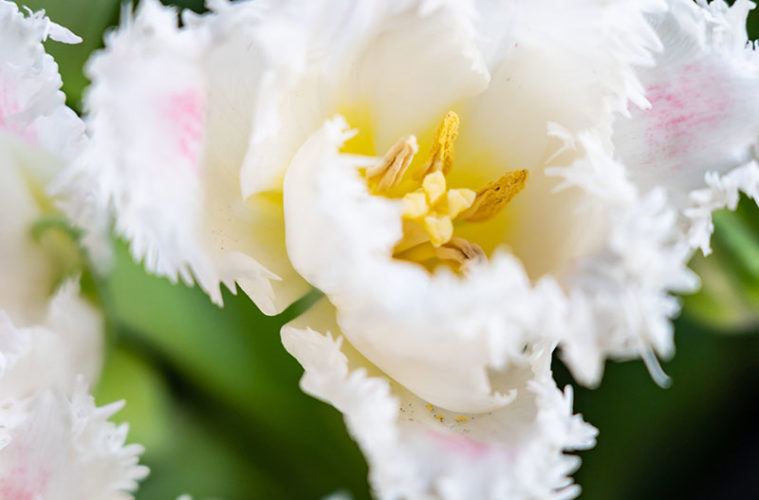For the past several decades, Community Supported Agriculture (CSA) has been an excellent way for people to enjoy seasonal, locally grown goodies from local farmers. Traditionally, folks pay for a subscription upfront—so the farmers can manage their cash flow—in return for a weekly box of vegetables.
Now, we’re seeing floral CSAs, thanks to an abundance of flower farms popping up across the country, including several on the North Shore. The folks who run these farms love growing flowers and want to share their colorful bounty with you. Here are several local ones offering CSAs.
Kinsman Farm Flowers
“We’re known for tulips because we go for the dramatic types with flair,” says Marlene Pippins who, with her family owns Kinsman Farm Flowers in Ipswich—run solely as a CSA since 2021. “These aren’t your typical varieties; we purchase specialty bulbs from Holland like apricot and silver Parrot and Rembrandt tulips that, when open, are larger than your palm.”
Pippins, who works a day job as a media manager, also grows—on her six-and-a-half acre farm—nostalgic sweet peas and romantic peonies, followed by summer specialty snapdragons, Seashell Cosmos, giant zinnias, apricot asters, fragrant stock, and designer dahlias, including the showy dinner plate ones. They all go into the farm’s CSA, which runs May through September. Pippins offers a monthly pay-as-you-go subscription for a weekly bouquet, available for pick-up at the Kinsman Farm Flowers barn. The flowers are wrapped in eco-friendly brown paper with the farm’s logo and tied with ribbon.

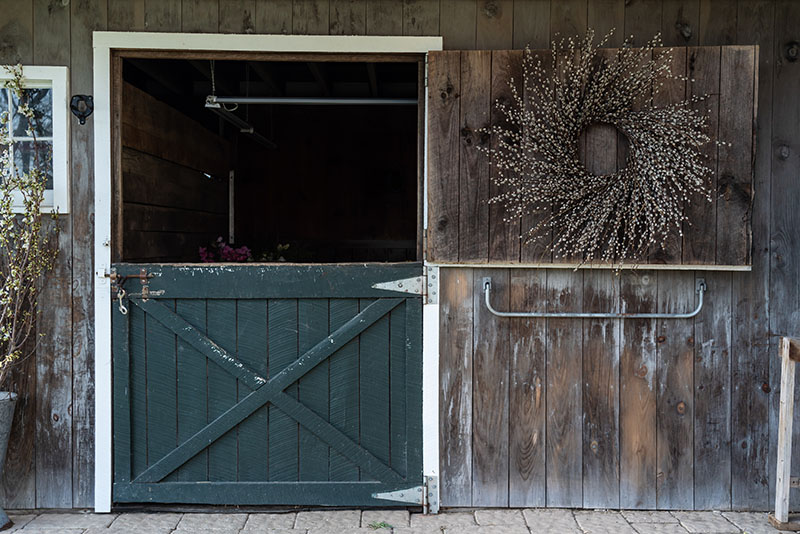
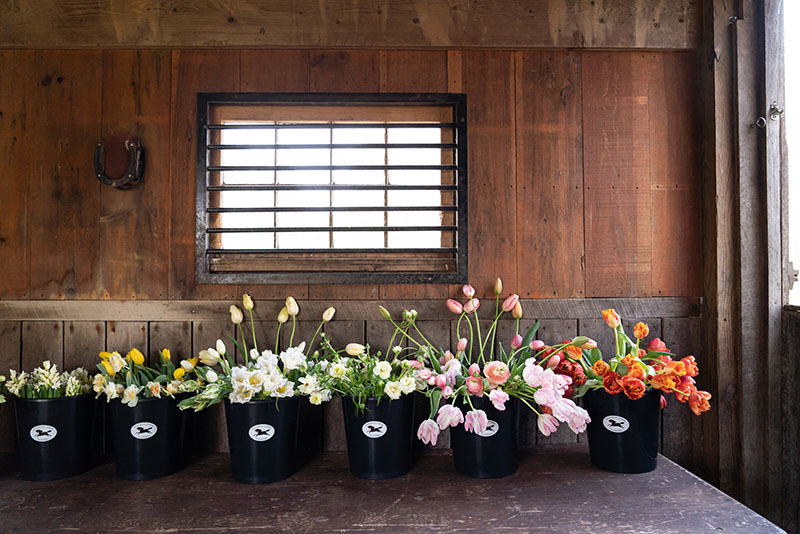
After graduation from Boston University, Pippins studied floral design and landscape at Essex North Shore Agriculture School. And she has been gardening on the North Shore for over 30 years, including volunteering at Beverly’s Long Hill and Ipswich’s Crane Estate, both run by the Trustees. She is also a former president of the Essex County Garden Club.
“When you have a farm, you have to get up early,” says Pippins. “I just love the morning light. It’s so beautiful and peaceful and the best time to harvest.”
Posy Florals
After years of working in biopharma in Boston and tending a community garden as a hobby, Kellie Dodd moved to Manchester-by-the-Sea in December 2020 to pursue her passion—growing flowers organically for a living. In February 2021, she took Floret Flower Farm’s online workshop to learn how to start a cut-flower garden and build a flower business. That April, she began seedlings, and Posy Florals was born.
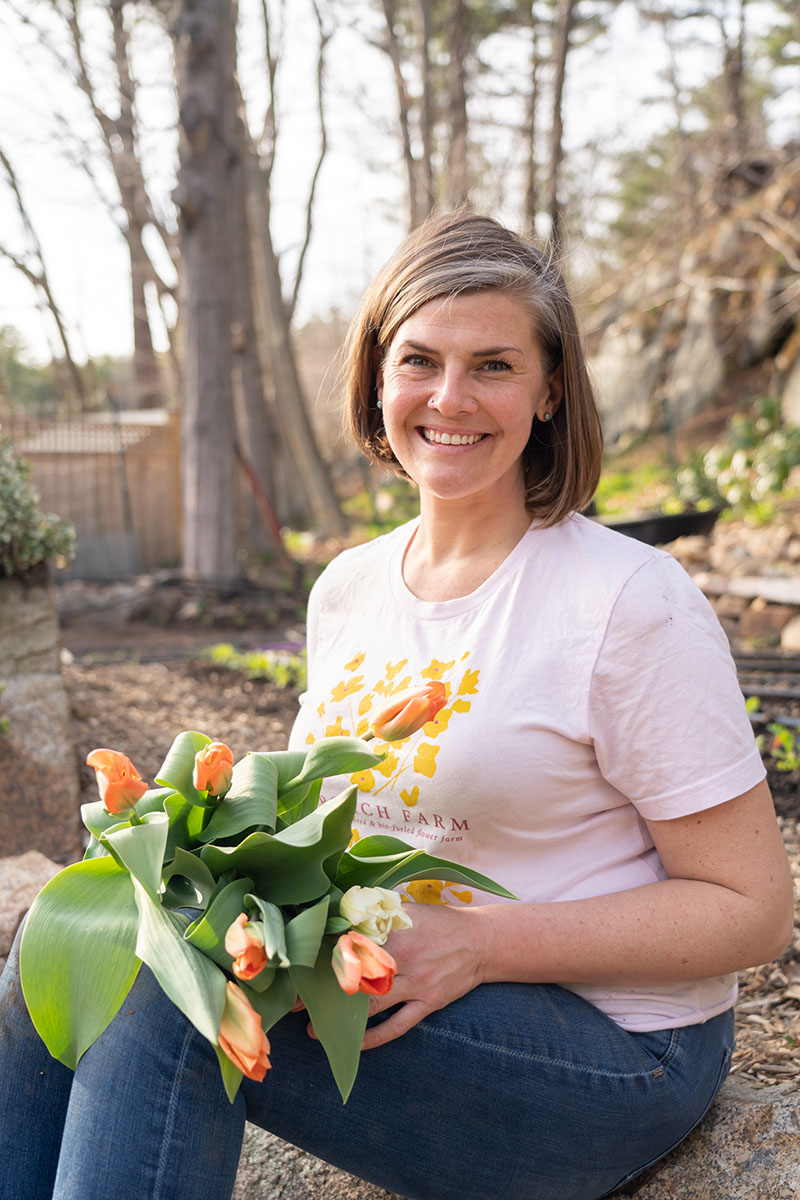


“I have a quarter acre in my backyard and I recently got access to a new plot in Peabody that’s a little over three acres,” says Dodd, who consults on the side to make ends meet. “I have a large setup in my basement that can hold 64 flats of flowers under lights, and that’s where I do all my germination and feeding. Then I move everything to my screen porch, which doubles as a greenhouse, to get the plants climatized before putting them in the field.” Dodd grows about 100 different flower varieties, including exotic Madame Butterfly snapdragons, Sumiko, lisianthus, Cupcake zinnias, fancy Double and Parrot tulips, Italian ranunculus, double anemone, and fritillaria. This year she’s planted delphiniums, larkspur, and hellebore.
Dodd’s five-week spring CSA begins at the end of May. Her seven-week summer one begins mid-July. She wraps her bouquets in compostable brown paper with an eco-fresh hydrating wrap around the stems and makes them available at various pick-up sites.
“Last year, I had 30 CSA members and this year, I’ll [accept] 40 for the summer CSA. Next year with the new plot, I hope to make the number of CSAs available even higher.”
Maitlind Mountain Farm
Andy Varela and his wife, Holly Maitlind, own the two-and-a-half-acre Maitlind Mountain Farm, the only working farm in Salem. “We’ve been selling flowers for about ten years but did a flower CSA for the first time last year,” says Varela, who funds his love of florals by selling 10,000 pounds of pickles weekly that he and his wife craft from the farm’s vegetables. “We’re real advocates of agriculture and not just growing produce but flowers as well. It’s very fulfilling not only for the person engaged in the business but the people buying them. Keeping things local is so relevant and important to the personality of the North Shore.”
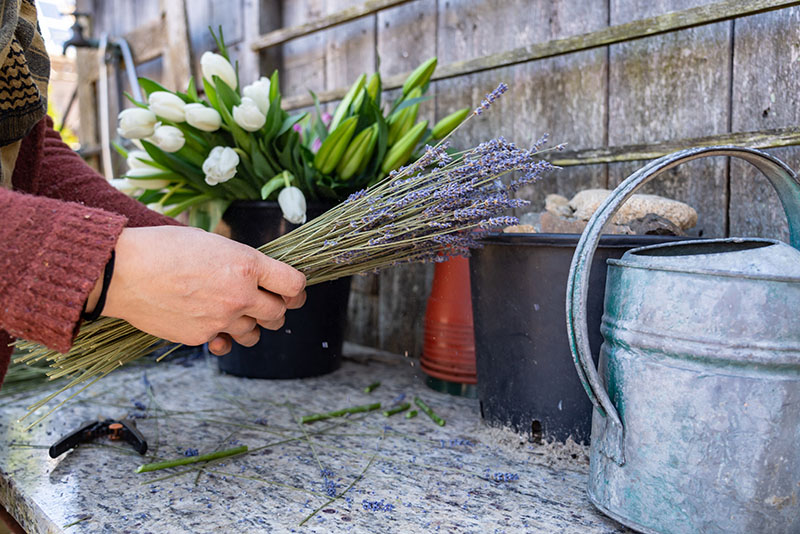

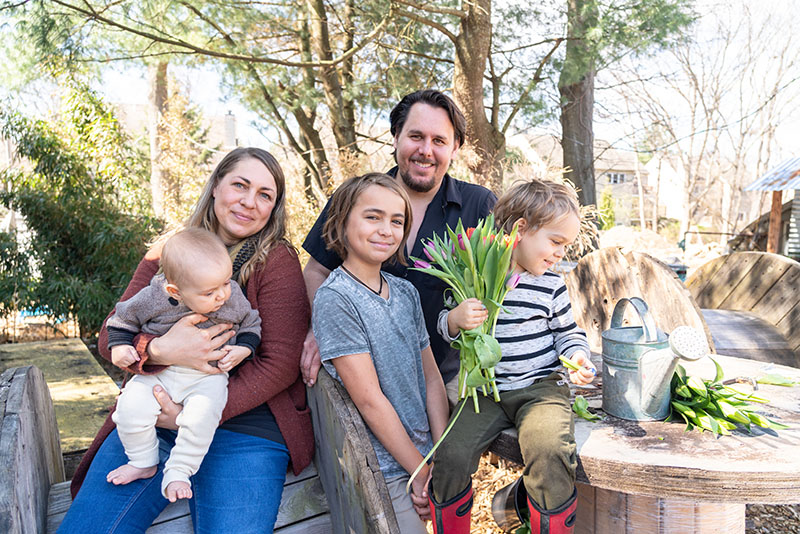

The farm grows over 100 varieties of dahlias in dozens of colors, along with snapdragons, Bells of Ireland, delphinium, and more. They all go into the farm’s 12-week CSA, which starts in July. “Our arrangements have a huge change in color, texture, and floral variety from the beginning to the end of the season,” says Varela. The bouquets, put in Mason jars for curbside pick-up at the farm, also contain funky seasonal additions like garlic scapes, Russian sage, and amaranth.

